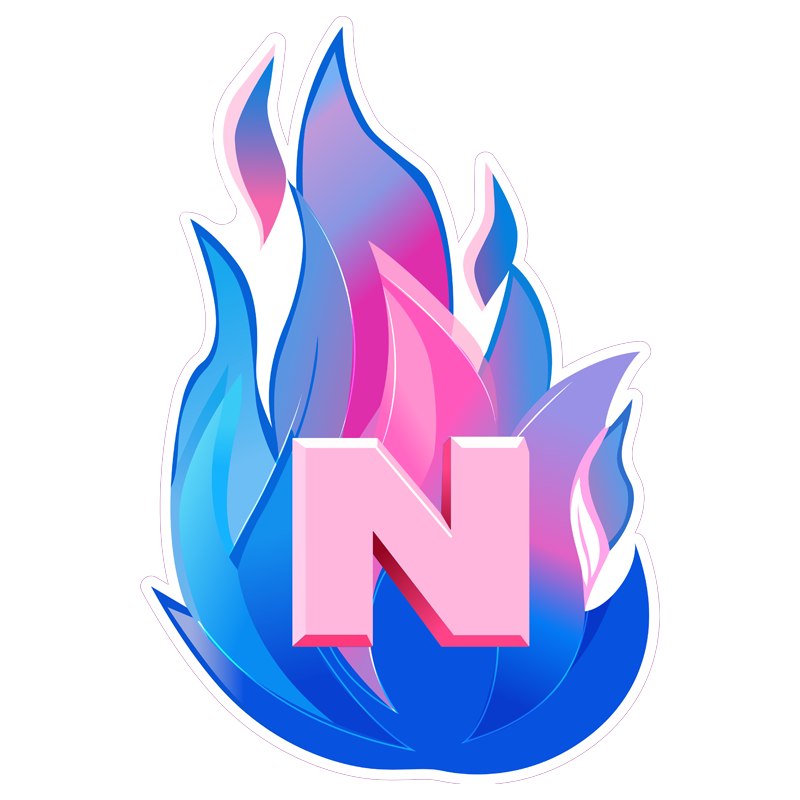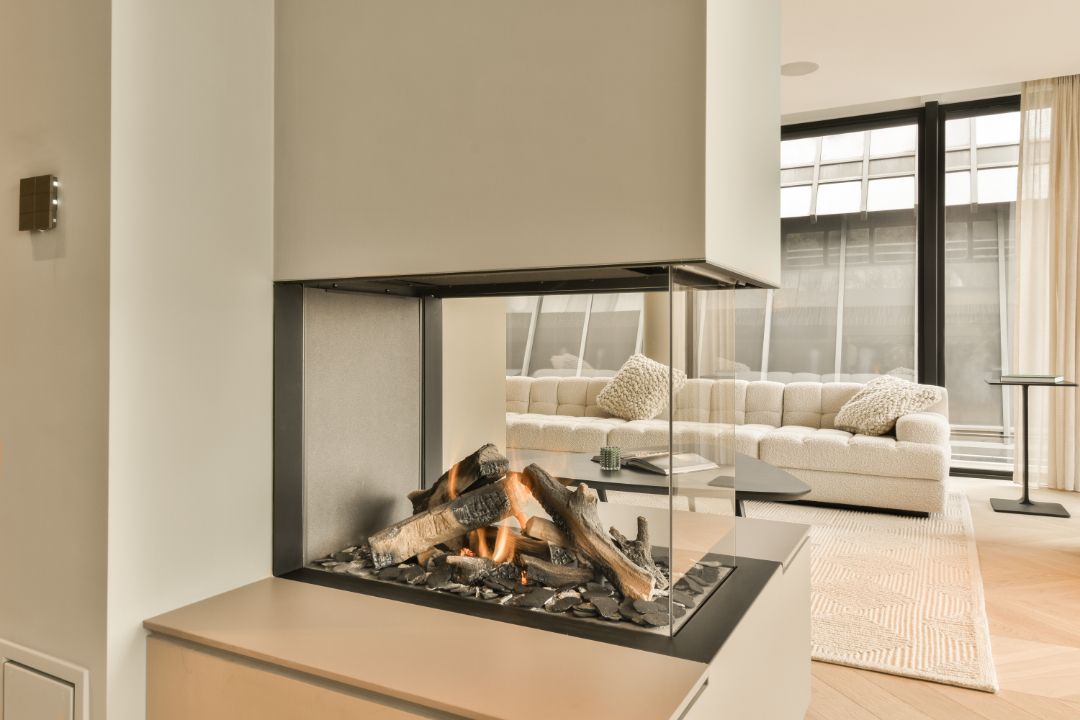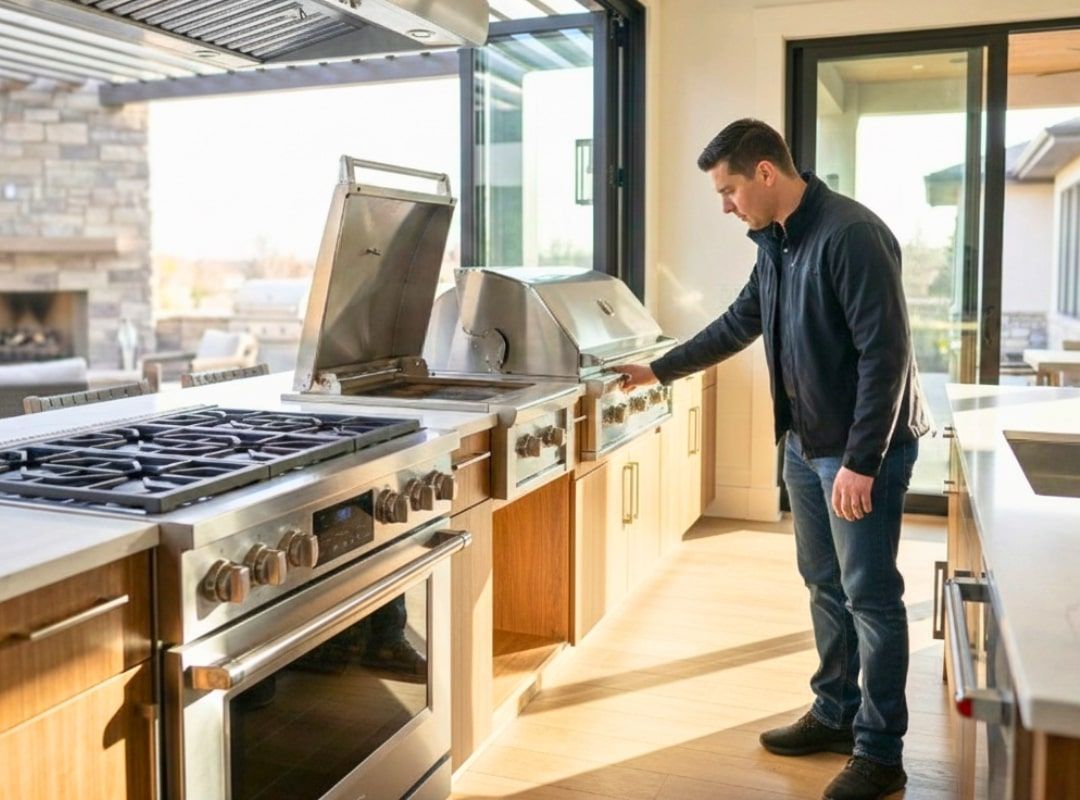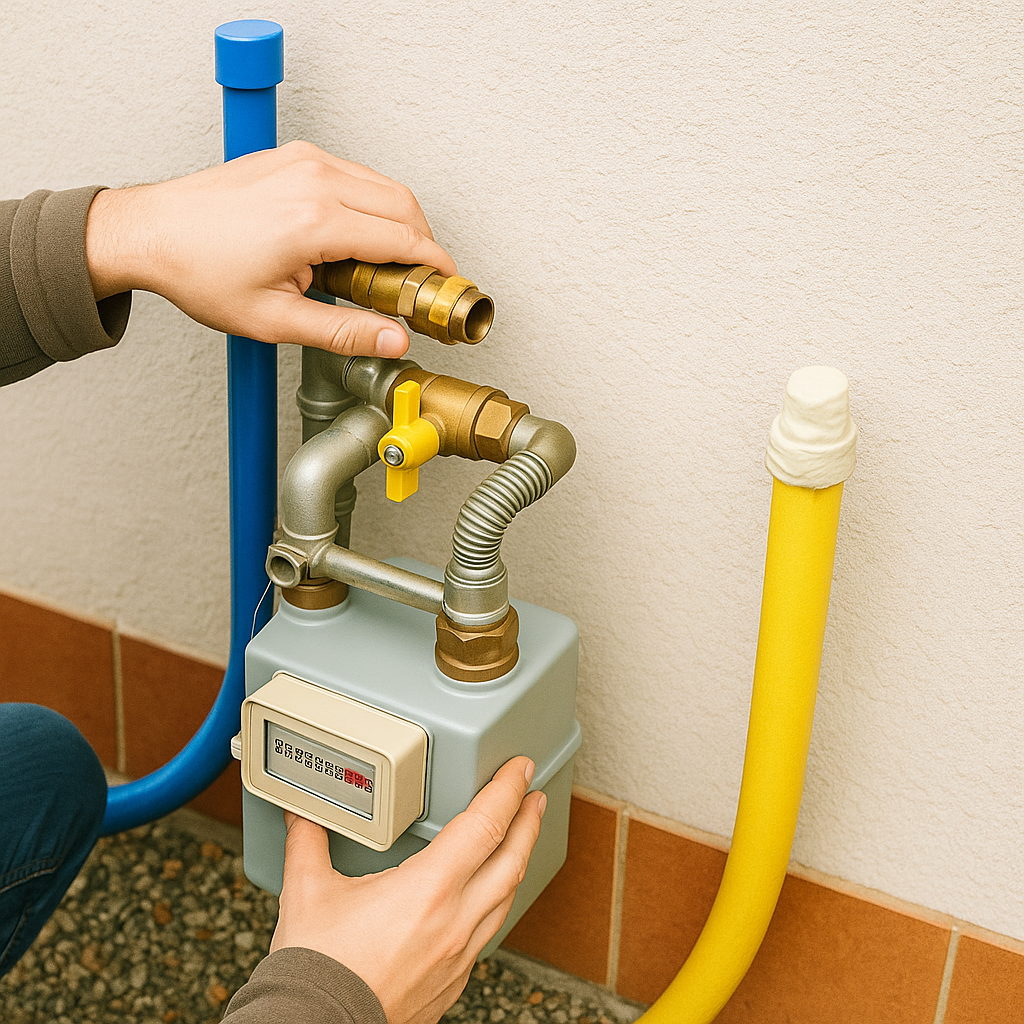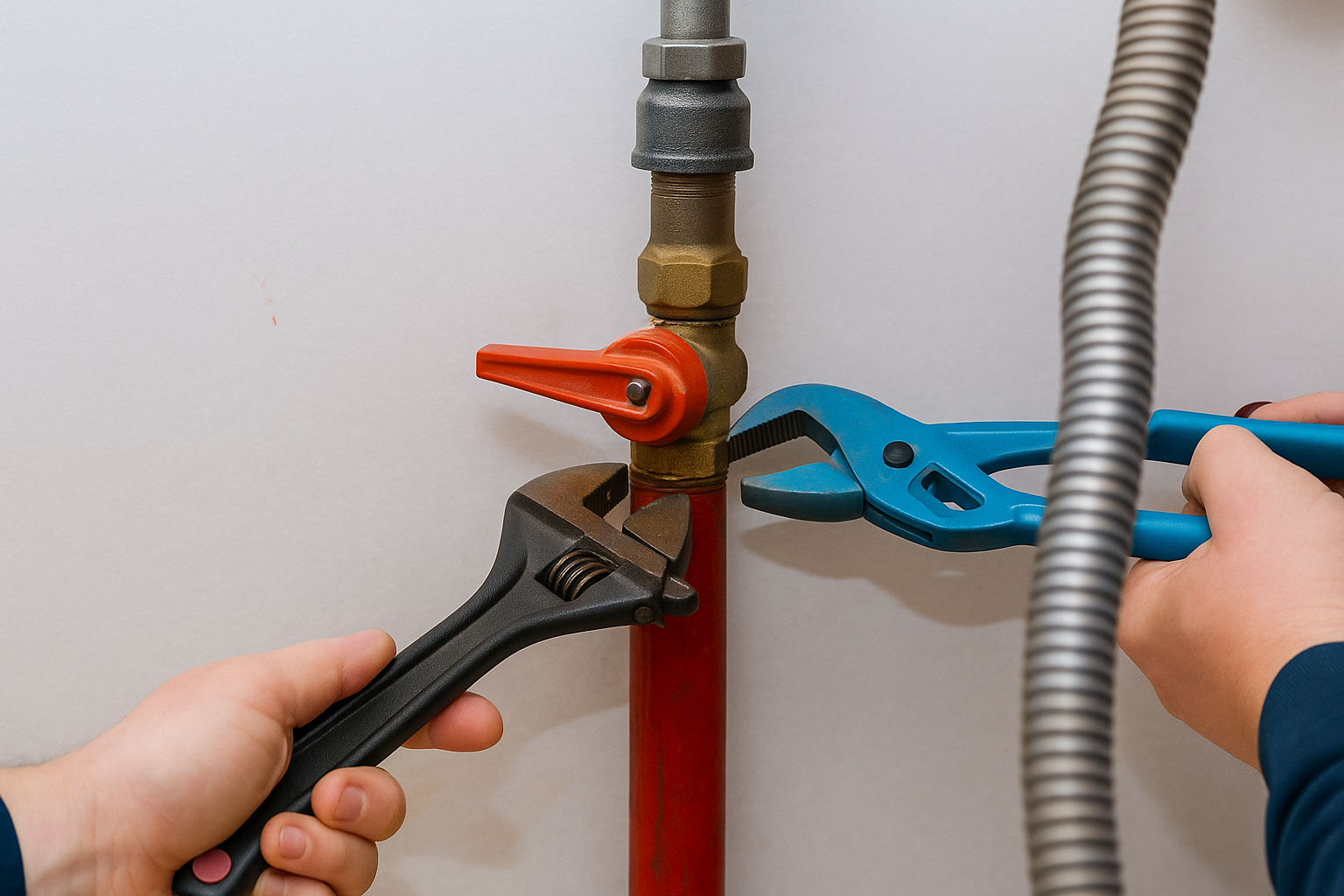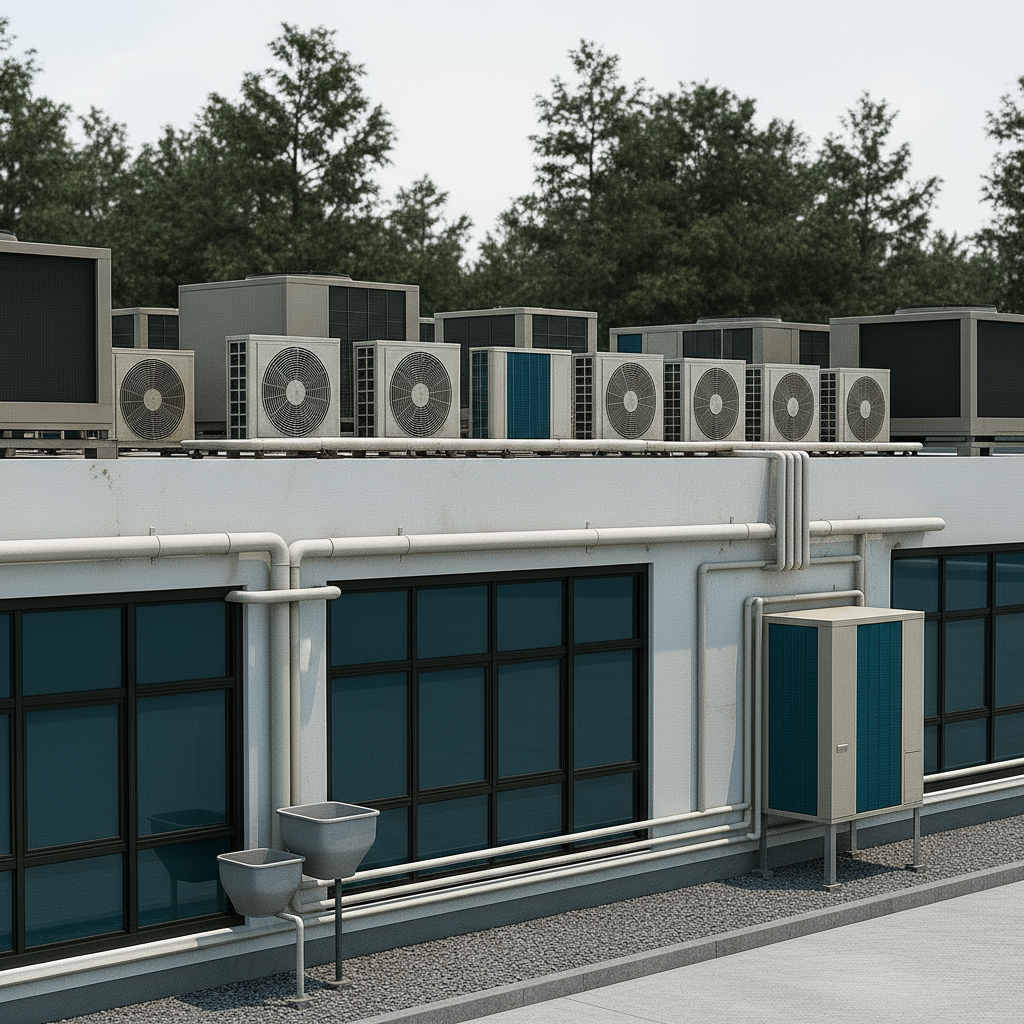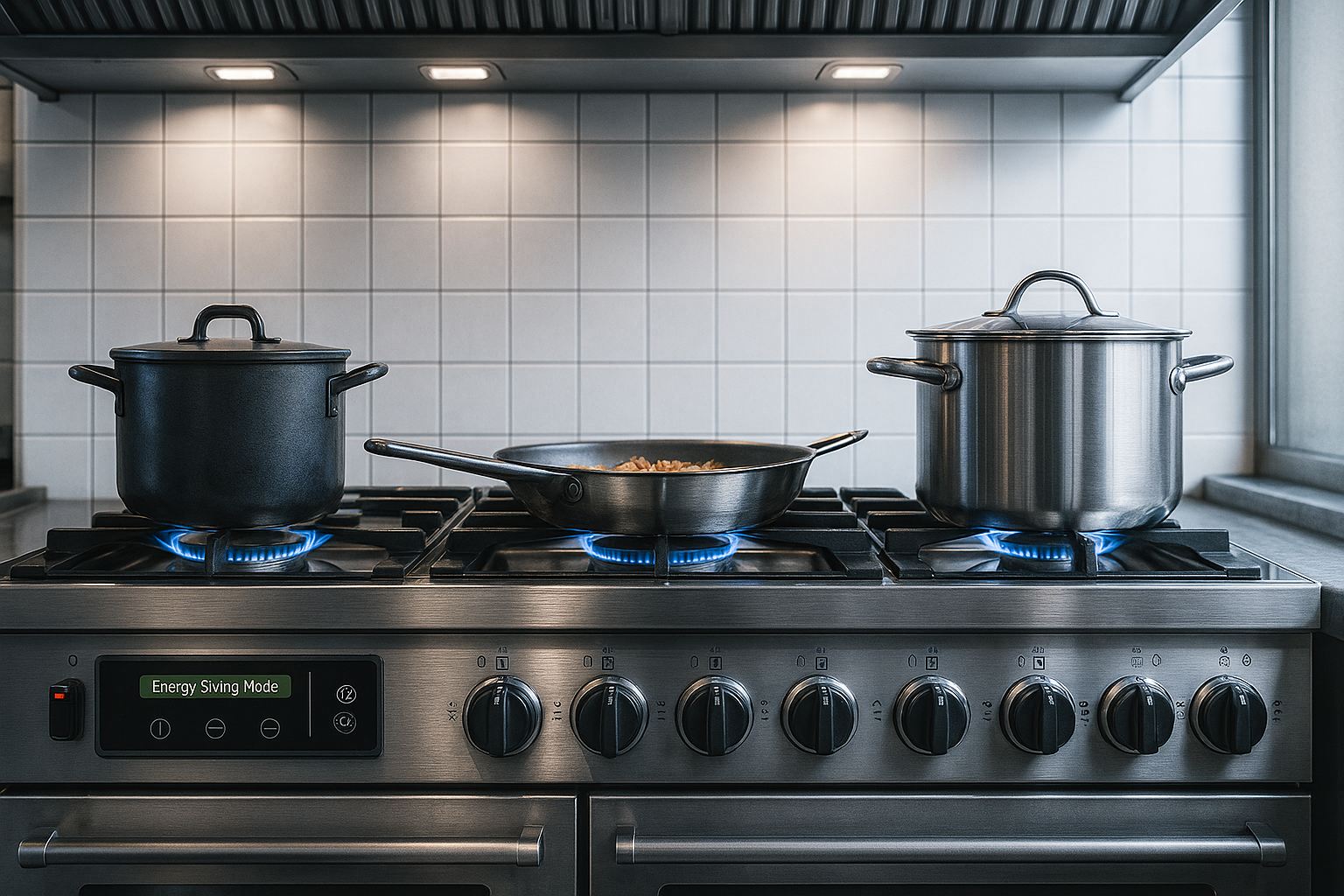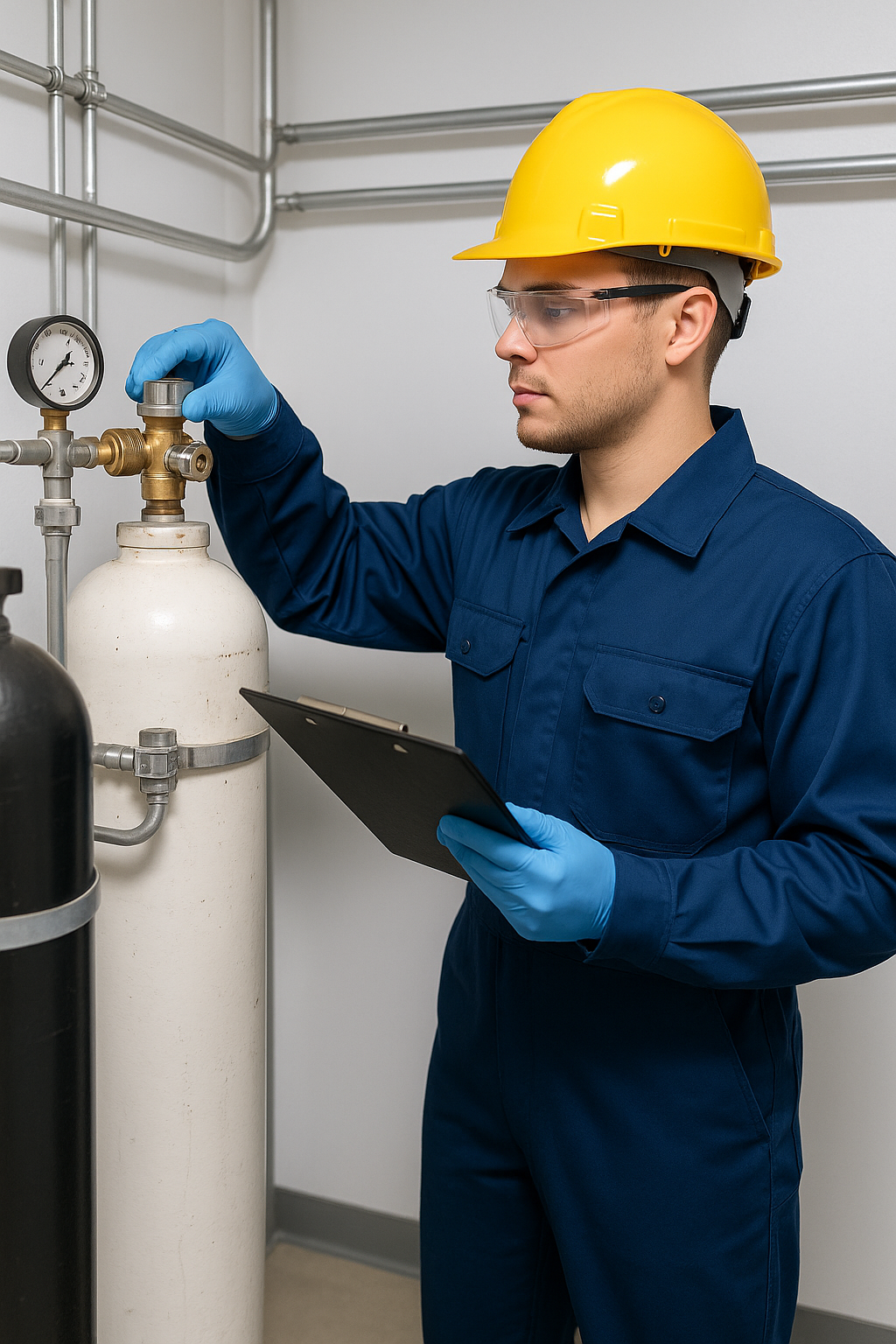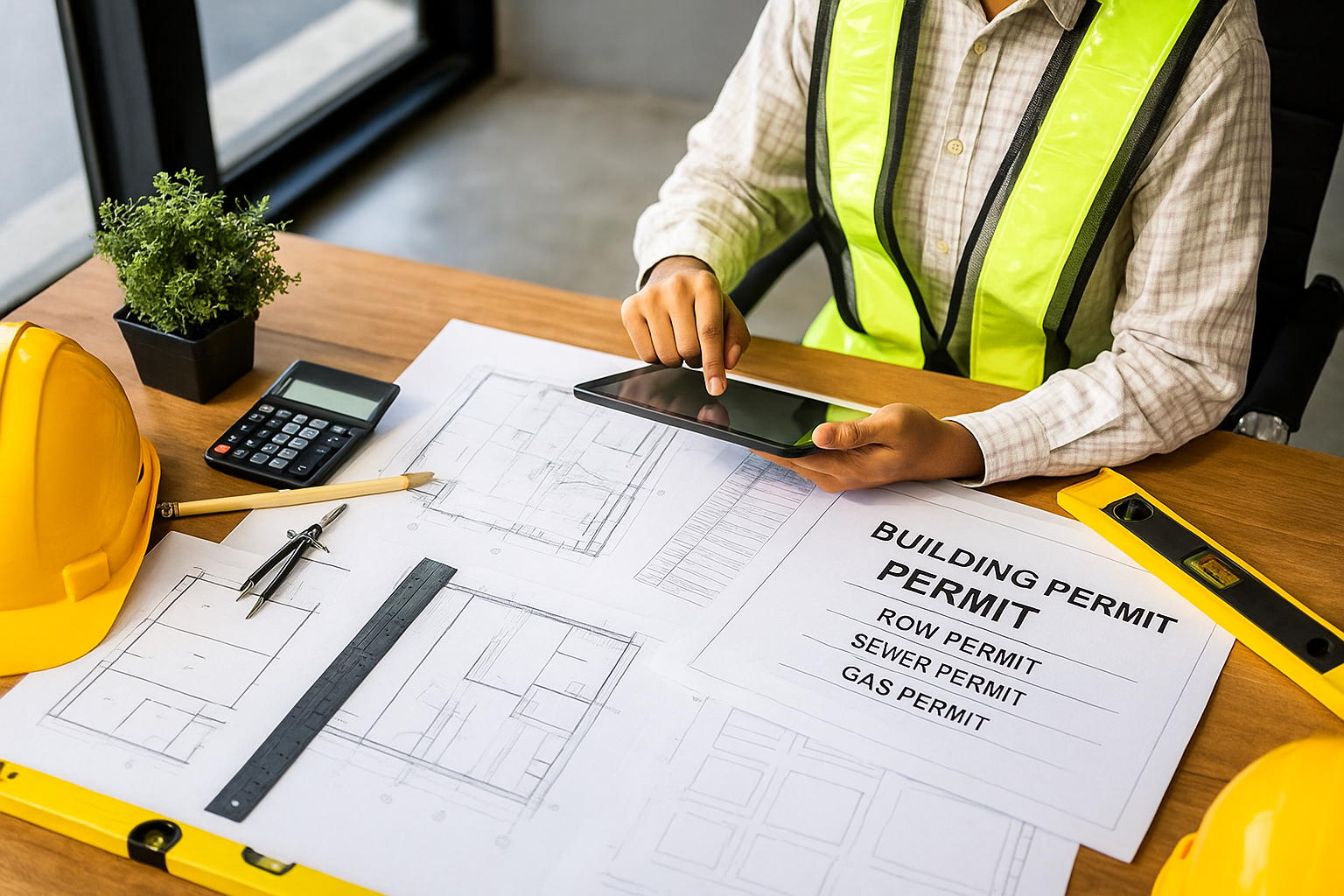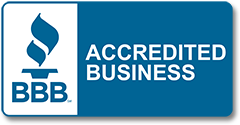What’s Included in a Professional Gas Line Inspection?
TLDR;
A professional gas line inspection includes checking all gas pipes, fittings, valves, and appliances for leaks, corrosion, or damage. Inspectors perform pressure tests, review appliance connections, and confirm compliance with safety and building codes to ensure your system operates safely and efficiently.
Understanding a Professional Gas Line Inspection
A professional gas line inspection is a detailed evaluation of your gas piping system performed by a licensed technician. The goal is simple: verify that every component delivering natural gas to your home or business is safe, sealed, and compliant. At NOVA Gas, inspections are designed to prevent leaks, reduce hazards, and maintain the long-term reliability of your system.
Professional inspections go far beyond visual checks. They involve specialized tools, gas detection technology, and code-compliance expertise. In Virginia, inspections also follow state and federal safety standards such as the Commonwealth of Virginia pipeline safety code and 49 CFR Parts 191–193.
Why Gas Line Inspections Are Essential for Safety and Efficiency
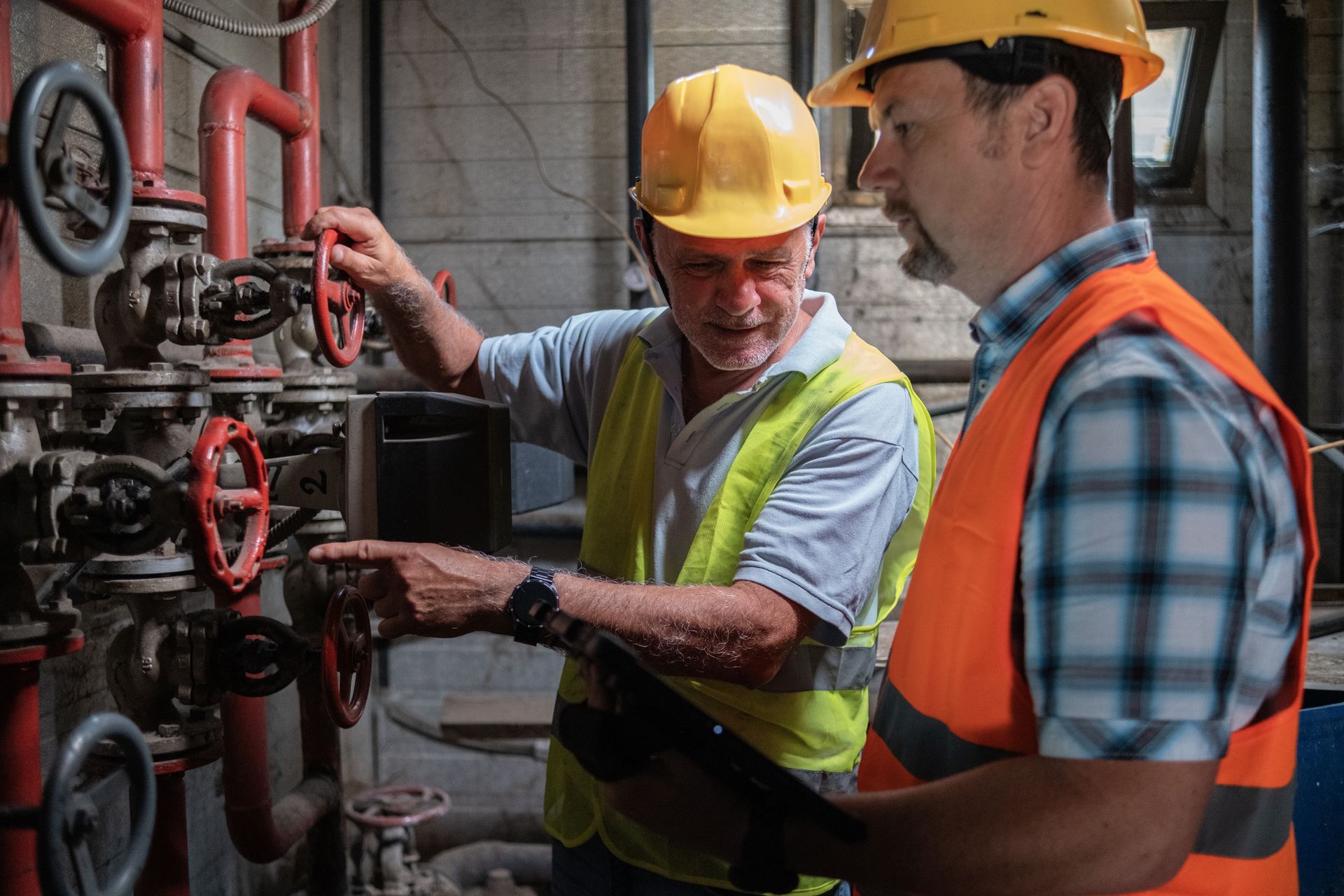
Gas lines degrade over time from corrosion, soil conditions, and temperature fluctuations. A professional gas line inspection helps detect problems early before they become dangerous or expensive.
Key benefits include:
- Preventing gas leaks and explosions.
- Ensuring appliances operate efficiently.
- Maintaining compliance with local codes and insurance requirements.
- Protecting property value during home sales or renovations.
- Reducing risk of carbon monoxide exposure.
How Often You Should Schedule a Gas Line Inspection
Gas lines should be inspected regularly. While frequency depends on usage and age, most systems benefit from annual or biennial inspections.
Factors that influence timing:
- The age and material of your gas pipes.
- Number and type of gas appliances.
- Soil and moisture exposure around buried lines.
- Recent renovations or added appliances.
- Virginia’s climate, which can accelerate corrosion in underground lines.
NOVA Gas recommends scheduling an inspection after any major plumbing, construction, or landscaping project that could disturb buried pipes.
What’s Included in a Professional Gas Line Inspection
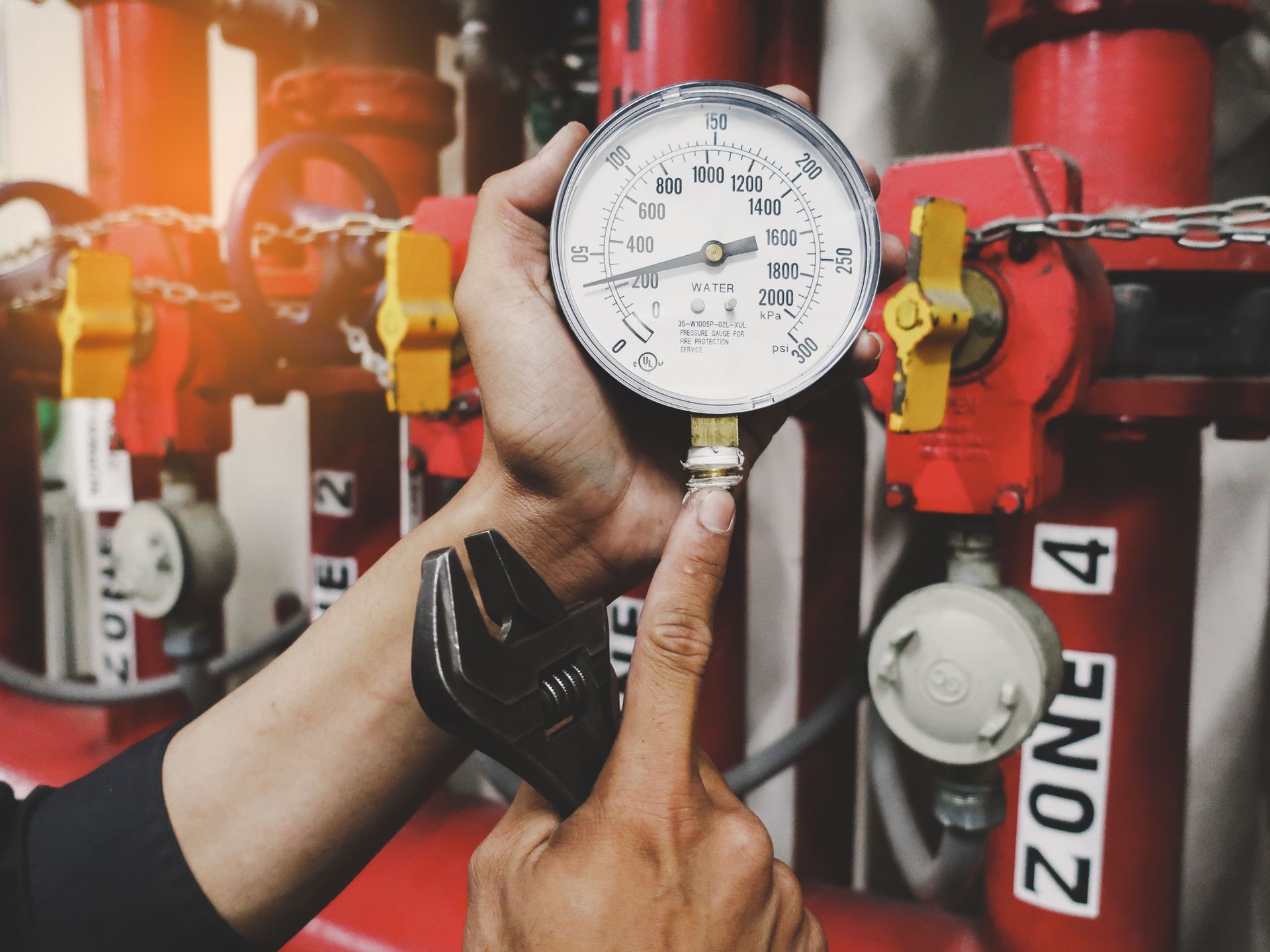
A full inspection covers every visible and functional aspect of your gas system. Below is the professional gas line inspection checklist used by experts at NOVA Gas.
Visual and Structural Inspection of Piping
Inspectors start with a full visual evaluation of interior and exterior piping. This includes:
- Checking for rust, dents, or physical damage.
- Inspecting joints and fittings for secure connections.
- Confirming that pipes are properly supported and routed.
- Reviewing clearances between gas lines and combustible materials.
- Examining the gas meter and shut-off valves for signs of wear.
Underground service lines from the meter to appliances are also reviewed. Inspectors look for exposed or damaged lines, erosion, or improper depth.
Leak Detection and Pressure Testing
Detecting leaks is one of the most critical steps. Professionals use advanced equipment to find even the smallest leaks that the human nose cannot detect.
Methods include:
- Electronic gas detectors or sniffers.
- Soap solution tests on fittings and joints.
- Ultrasonic leak detection tools.
- Pressure testing with air or inert gas to monitor pressure drops.
Pressure testing confirms that your gas system can safely hold the required pressure without leakage or weak points.
Appliance and Connection Inspection
Each gas appliance connected to your system is examined to ensure proper operation and safety. This step includes:
- Inspecting connections for stoves, furnaces, water heaters, and fireplaces.
- Checking for correct appliance load and BTU capacity.
- Confirming adequate combustion air and ventilation.
- Testing burner pressure and gas flow rate.
- Reviewing gas shut-off valves and flexible connectors.
Inspectors also verify that appliances are properly vented to prevent carbon monoxide buildup.
Ventilation and Carbon Monoxide Safety
Proper ventilation is vital for safe combustion. During inspection, the technician:
- Checks vents and flues for blockages, corrosion, or leaks.
- Confirms vents are properly sloped to discharge exhaust gases.
- Evaluates carbon monoxide detectors and alarms.
- Identifies any signs of back-drafting or incomplete combustion.
If carbon monoxide is detected, the inspector will immediately recommend shutting down affected appliances and performing a full system evaluation.
Underground Service and External Components
Many leaks originate underground or near exterior meters. A professional inspection includes:
- Assessing buried service lines for coating damage or corrosion.
- Checking for vegetation or soil conditions that indicate leaks.
- Verifying cathodic protection systems where applicable.
- Inspecting meter placement for accessibility and clearance.
- Ensuring external lines to outdoor appliances are secure and intact.
These outdoor checks help prevent long-term deterioration from moisture, soil movement, or improper installation.
Compliance, Documentation, and Reporting
After completing the inspection, the licensed inspector documents all findings. Reports include:
- Identified issues and their severity.
- Repair recommendations and priority levels.
- Confirmation of compliance with Virginia and federal codes.
- System performance and maintenance notes.
Homeowners and businesses receive a written report to keep for insurance and regulatory purposes. NOVA Gas ensures that documentation meets all state requirements for proof of inspection.
What Homeowners Should Expect During a Gas Line Inspection
Knowing what to expect helps the inspection process go smoothly. Here’s what usually happens:
- The inspector arrives and reviews your gas layout.
- All gas appliances and piping are visually checked.
- Pressure tests and leak detection are performed.
- The gas meter and valves are examined.
- You receive an inspection summary and safety recommendations.
Preparation tips:
- Clear access to the gas meter and appliances.
- Keep pets and children away from work areas.
- Remove vegetation or debris near outdoor lines.
An inspection typically takes less than an hour depending on property size and number of appliances.
Common Issues Found During Gas Line Inspections

Regular inspections often reveal small but serious problems — especially if you’ve noticed any warning signs of gas line failure around your home. Common findings include:
- Corroded or rusted pipes.
- Loose fittings or valves.
- Improperly sized piping for appliance demand.
- Unsecured or unsupported gas lines.
- Blocked vents or flues.
- Evidence of minor leaks or pressure drops.
- Old or brittle flexible connectors.
These issues can lead to leaks, poor performance, or non-compliance with safety codes.
What to Do if Issues Are Found
If the inspection uncovers problems, take immediate action:
- Shut off the main gas valve if there is an active leak.
- Contact NOVA Gas or another licensed contractor for
professional repairs.
- Do not attempt to fix gas lines yourself.
- Request a follow-up inspection after repairs are complete.
- Keep all documentation for your records.
Professional technicians determine whether lines require repair, replacement, or full re-routing.
Choosing a Licensed Gas Line Inspector in Virginia
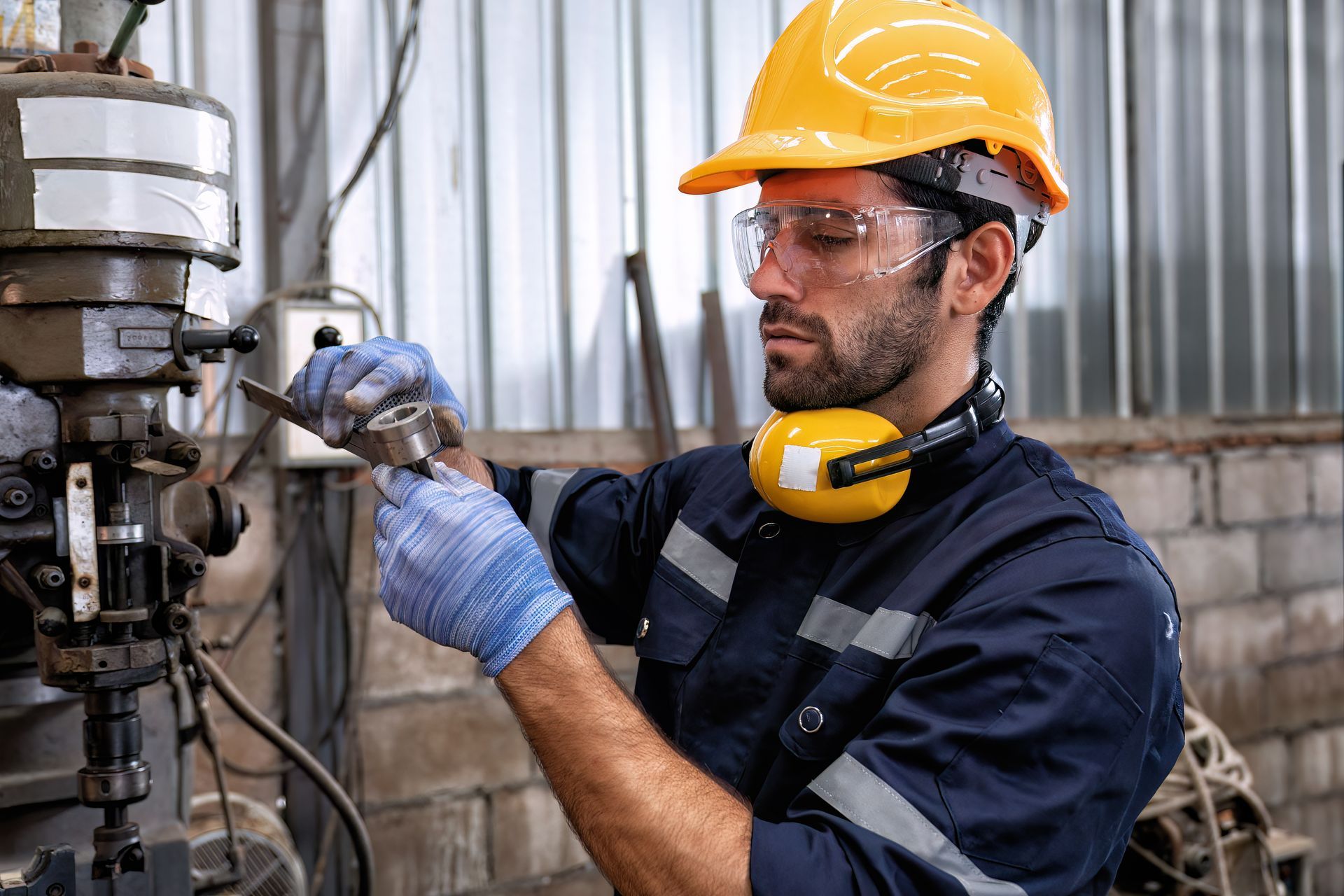
In Virginia, gas inspections must be performed by licensed professionals. When hiring, verify:
- Valid state and local licensing.
- Liability insurance coverage.
- Experience with both residential and commercial systems.
- Familiarity with local codes and inspection requirements.
- Positive customer references.
NOVA Gas employs certified technicians who understand regional standards and safety protocols.
Professional vs DIY Gas Line Inspection
While homeowners can perform basic visual checks, professional inspections are essential for true safety. DIY inspections cannot detect underground leaks or pressure loss.
Risks of self-inspection:
- Missed leaks due to lack of equipment.
- Unintentional damage to gas fittings.
- Code violations leading to insurance denial.
- Exposure to toxic gases.
You can occasionally perform safe checks such as:
- Observing any unusual gas smells.
- Checking appliance flames for steady blue color.
- Monitoring your gas bill for unexplained increases.
But a professional should always handle full system evaluations.
Gas Line Safety and Long-Term Maintenance
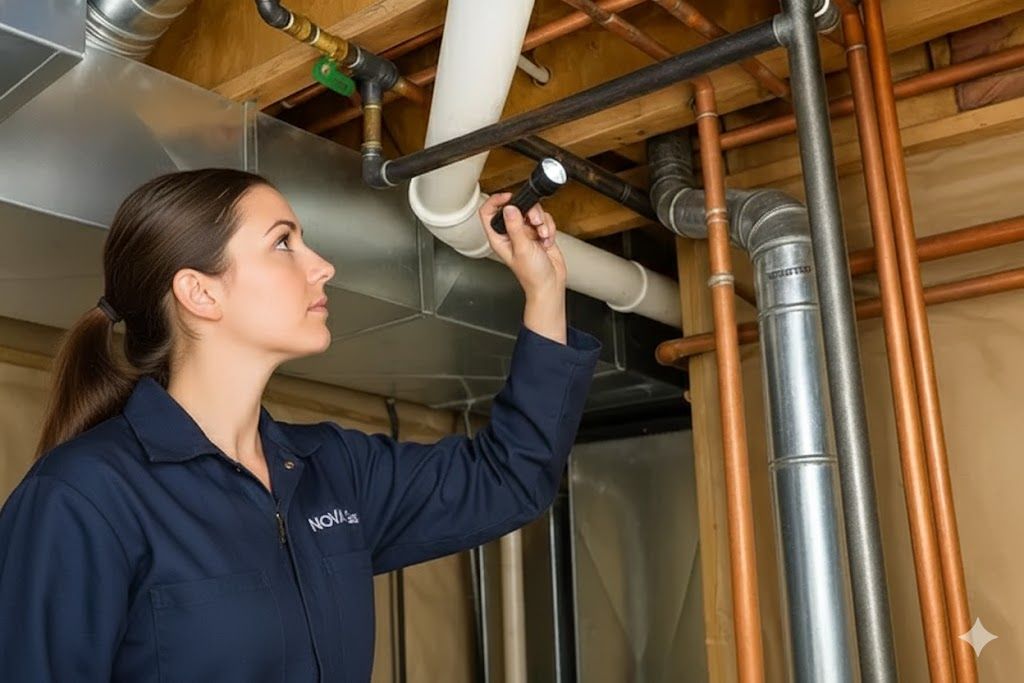
Maintaining your gas system prevents emergencies and prolongs lifespan. Best practices include:
- Scheduling regular professional inspections.
- Keeping appliances serviced according to manufacturer recommendations.
- Protecting outdoor lines from lawn equipment and corrosion.
- Installing carbon monoxide detectors near sleeping areas.
- Reporting any gas smell or hissing sound immediately.
NOVA Gas helps homeowners and businesses establish
preventive maintenance plans tailored to their systems.
Why a Professional Gas Line Inspection Matters
A professional gas line inspection protects lives, property, and investment. It ensures every part of your gas system—from meter to appliance—is secure and compliant.
When performed by experts like NOVA Gas, inspections provide confidence that your system meets all safety standards and operates at peak efficiency.
Whether you are maintaining an older home, preparing to sell, or simply prioritizing safety, a professional gas line inspection is a smart decision that keeps your home and family safe year-round.
